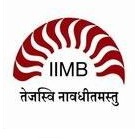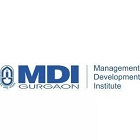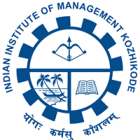Top Colleges in India Accepting CAT
MBA is one of the most popular postgraduation courses in India offered by 21 IIMs and over 8,100 colleges in various specialisations for students to choose from. The most prominent MBA colleges in India include the IIMs, XLRI, IIFT, FMS, SPJIMR, MDI Gurgaon, ISB Hyderabad and many others. MBA is generally offered as a full-time two-year course, though many leading MBA colleges in India offer executive MBA as well, wherein the classes are conducted only on the weekends. The most popular MBA specialisations in India are finance, marketing, international business, business analytics, human resource management and several others.
Best MBA Colleges in India Accepting CAT (NIRF Ranking)
National Institute Ranking Framework (NIRF) is an initiative of the MHRD, Government of India, to rank various educational institutes in India. NIRF evaluates the institutes on parameters like research and professional practice, outreach and inclusivity, teaching, learning, and resources, peer perception, and graduation outcomes. Here is a list of MBA colleges in India accepting CAT as per NIRF ranking: -
Name of the College | NIRF Ranking |
1 | |
2 | |
3 | |
4 | |
5 | |
6 | |
7 | |
8 | |
9 | |
10 |
Best MBA Colleges in India Accepting CAT (Careers360 Ranking)
Careers360 is a leading online education platform that is committed to offering a one-stop resource for every query that students may have related to various aspects of their education. Based on its intensive research processes, Careers360 has released the following list of MBA colleges in India accepting CAT scores along with the Careers360 ranking: -
Name of the College | Careers360 Ranking |
IIM Ahmedabad | 1 |
IIM Bangalore | 2 |
IIM Calcutta | 3 |
FMS Delhi | 4 |
IIM Indore | 5 |
IIM Kozhikode | 6 |
XLRI Jamshedpur | 7 |
IIM Lucknow | 8 |
DMS IIT Delhi | 9 |
MDI Gurgaon | 10 |
Check out the best MBA colleges in India and its metropolitan cities -
MBA admission process for colleges in India accepting CAT
The admission process for the best MBA colleges in India accepting CAT will vary slightly. There are various stages in the admission process that the candidates must complete. Here are some of the common steps in the admission process for the CAT accepting colleges in India accepting CAT:
Complete the CAT registration process and pay the required examination fee.
Appear for the Common Admission Test (CAT).
After the CAT results are announced, search for suitable institutes.
Check the application deadlines for respective colleges and complete the application process before the due date.
Prepare all the essential documents pertaining to educational qualifications and work experience (if any).
Prepare for the different stages in the selection process like WAT, GD, PI.
Appear for the selection process and give your best efforts.
Check your name in the result. If qualified, complete the MBA admission process before the due date.
Click on the links below for the admission process details for the best MBA colleges in India accepting CAT: -
Best MBA Colleges in India accepting CAT (Fees-wise)
One of the most important aspects that candidates must look at while determining the most prominent MBA colleges in India is the course fees. Here is the list of MBA colleges in India accepting CAT based on their average course fees.
Name of the College | Course fees (appx) |
Rs. 0.20 lakhs | |
Rs. 23.00 lakhs | |
Rs. 23.00 lakhs | |
Rs. 0.98 lakhs | |
Rs. 0.79 lakhs | |
Rs. 1.29 lakhs | |
Rs. 0.29 lakhs | |
Rs. 14.2 lakhs | |
Rs. 7.75 lakhs | |
Rs. 18.51 lakhs |
Use these free tools to get a list of colleges where you can apply for MBA admission based on your entrance exam score.
Frequently Asked Questions:
Q. How long is the duration of the MBA course in India?
A. Normally, the duration of a full-time MBA course in India is that of two years. The duration of executive MBAs differs across institutes and can last anywhere from ten months to one year.
Q. How many times is CAT conducted every year?
A. CAT MBA entrance exam is conducted once every year in the month of November/December, with examination centres present across India.
Q. Which are the best two MBA colleges in India accepting CAT scores as per NIRF?
A. IIM Ahmedabad and IIM Bangalore are the leading MBA colleges in India accepting CAT scores as per the NIRF.
Q. Which are the most popular MBA specialisations at the leading business schools in India?
A. The most popular MBA specialisations in India are finance, marketing, international business, human resources, data analytics and several other specialisations.
Q. How long will it take me to prepare for CAT?
A. The time required to prepare for CAT varies across candidates. Generally, it is recommended that you start the CAT preparation at least six to ten months in advance.
IIM Ahmedabad (IIMA) - Indian Institute of Management Ahmedabad
NIRF Ranking:
1Careers360
: 1- Exams: CAT, +1 more
- Fees : ₹20 Lakhs
- MBA (4 Courses)
IIM Bangalore - Indian Institute of Management Bangalore
NIRF Ranking:
2Careers360
: 2- Exams: CAT, +2 more
- Fees : ₹26 Lakhs
- MBA (4 Courses)
MDI Gurgaon - Management Development Institute, Gurgaon
NIRF Ranking:
9Careers360
: 2- Exams: CAT
- Fees : ₹22.00 Lakhs
- P.G.D.M (8 Courses)
- FPM (1 Course)

IIM Kozhikode - Indian Institute of Management Kozhikode
NIRF Ranking:
3Careers360
: 3- Exams: CAT
- Fees : ₹13.22 Lakhs
- P.G.P (4 Courses)
SPJIMR Mumbai - SPJIMR, Mumbai
NIRF Ranking:
20Careers360
: 3- Exams: GMAT, +1 more
- Fees : ₹26.50 Lakhs
- P.G.D.M (2 Courses)
- P.G.P (6 Courses)
IIM Calcutta - Indian Institute of Management Calcutta
NIRF Ranking:
7Careers360
: 4IIM Mumbai - Indian Institute of Management Mumbai
NIRF Ranking:
6Careers360
: 5- Exams: CAT
- Fees : ₹20.50 Lakhs
- MBA (3 Courses)
- Ph.D (2 Courses)

IIM Lucknow - Indian Institute of Management Lucknow
NIRF Ranking:
5Careers360
: 6- Exams: GATE, +5 more
- Fees : ₹7.50 Lakhs
- FPM (1 Course)
- MBA (3 Courses)
Great Lakes Chennai (GLIM) - Great Lakes Institute of Management, Chennai
NIRF Ranking:
37Careers360
: 6- Exams: NMAT, +3 more
- Fees : ₹18.86 Lakhs
- P.G.P (3 Courses)
IIM Indore - Indian Institute of Management Indore
NIRF Ranking:
8Careers360
: 7- Exams: CAT
- Fees : ₹17.58 Lakhs
- P.G.P (4 Courses)
- Ph.D (2 Courses)
TAPMI Manipal - T A Pai Management Institute, Manipal
NIRF Ranking:
39Careers360
: 7- Exams: CAT, +3 more
- Fees : ₹19.50 Lakhs
- MBA (6 Courses)

IRMA Anand - Institute of Rural Management, Anand
NIRF Ranking:
54Careers360
: 8- Exams: CAT, +1 more
- Fees : ₹17.94 Lakhs
- P.G.D.M (1 Course)
FMS Delhi - Faculty of Management Studies, University of Delhi, Delhi
Careers360
: 8- Exams: CAT
- Fees : ₹2.29 Lakhs
- Executive MBA (2 Courses)
IIM Rohtak - Indian Institute of Management Rohtak
NIRF Ranking:
19Careers360
: 9- Exams: CAT
- Fees : ₹18.90 Lakhs
- P.G.P (2 Courses)
IMT Ghaziabad - Institute of Management Technology, Ghaziabad
NIRF Ranking:
30Careers360
: 9- Exams: XAT, +2 more
- P.G.D.M (6 Courses)

GIM Goa - Goa Institute of Management, Goa
NIRF Ranking:
43Careers360
: 10- Exams: CAT, +3 more
- Fees : ₹21.45 Lakhs
- P.G.D.M (5 Courses)
SJMSOM IIT Bombay - Shailesh J Mehta School of Management, Indian Institute of Technology, Bombay
IIM Ranchi - Indian Institute of Management Ranchi
NIRF Ranking:
18Careers360
: 11- Exams: CAT
- Fees : ₹19 Lakhs
- MBA (3 Courses)
- Ph.D (2 Courses)
IMI Delhi - IMI, Delhi
NIRF Ranking:
40Careers360
: 11- Exams: XAT, +2 more
- Fees : ₹23.39 Lakhs
- P.G.D.M (5 Courses)
- FPM (1 Course)

IBS Hyderabad - ICFAI Business School, Hyderabad
Careers360
: 12- Exams: CAT, +4 more
- Fees : ₹17.01 Lakhs
- B.B.A (3 Courses)
VGSOM IIT Kharagpur - Vinod Gupta School of Management, Indian Institute of Technology, Kharagpur
IIM Raipur - Indian Institute of Management Raipur
NIRF Ranking:
15Careers360
: 13MICA, Ahmedabad
NIRF Ranking:
33Careers360
: 13- Exams: CAT, +3 more
- Fees : ₹28 Lakhs
- P.G.D.M (2 Courses)

IIM Udaipur (IIMU) - Indian Institute of Management Udaipur
NIRF Ranking:
21Careers360
: 14- Exams: CAT
- Fees : ₹19.26 Lakhs
- MBA (3 Courses)
- Ph.D (5 Courses)
XIMB Bhubaneswar - Xavier Institute of Management, XIM University, Bhubaneswar
Careers360
: 14- Exams: CAT, +3 more
- Fees : ₹25.80 Lakhs
- Ph.D (2 Courses)
ASB Coimbatore - Amrita School of Business, Coimbatore
Careers360
: 15- Exams: CAT, +6 more
- Fees : ₹12 Lakhs
- Ph.D (1 Course)
IIT Roorkee - Indian Institute of Technology Roorkee
NIRF Ranking:
22Careers360
: 16- Exams: CAT
- Fees : ₹8.48 Lakhs
- MBA (2 Courses)
- Executive MBA (2 Courses)

KJSIM - K J Somaiya Institute of Management, Mumbai
NIRF Ranking:
65Careers360
: 16- Exams: CAT, +4 more
- Fees : ₹21.34 Lakhs
- MBA (5 Courses)
- Ph.D (7 Courses)
IIT Kanpur - Indian Institute of Technology Kanpur
NIRF Ranking:
27Careers360
: 17- Exams: CAT
- Fees : ₹7.49 Lakhs
- Ph.D (1 Course)
IIM Trichy - Indian Institute of Management Tiruchirappalli
NIRF Ranking:
16Careers360
: 18- Exams: CAT
- Fees : ₹19.50 Lakhs
- P.G.P (3 Courses)
- Ph.D (2 Courses)
BIMTECH Greater Noida - Birla Institute of Management Technology, Greater Noida
NIRF Ranking:
61Careers360
: 18- Exams: CMAT, +3 more
- Fees : ₹14 Lakhs
- P.G.D.M (4 Courses)
- FPM (2 Courses)

IIM Shillong - Indian Institute of Management Shillong
NIRF Ranking:
38Careers360
: 19- Exams: CAT, +1 more
- Ph.D (2 Courses)
Welingkar Mumbai - Prin LN Welingkar Institute of Management Development and Research, Mumbai
NIRF Ranking:
75Careers360
: 19- Exams: CAT, +4 more
- Fees : ₹14 Lakhs
- P.G.D.M (8 Courses)
- P.G.P (2 Courses)
IMI Kolkata - IMI, Kolkata
NIRF Ranking:
42Careers360
: 20DoMS IIT Madras - Department of Management Studies, Indian Institute of Technology, Madras
Careers360
: 20- Exams: CAT
- Fees : ₹11.72 Lakhs
- Ph.D (5 Courses)

IIM Kashipur - Indian Institute of Management Kashipur
NIRF Ranking:
23Careers360
: 21- Exams: GMAT, +1 more
- Fees : ₹11.90 Lakhs
- Executive MBA (1 Course)
- MBA (2 Courses)
Institute of Management, Nirma University, Ahmedabad
Careers360
: 21- Exams: CAT
- Fees : ₹13.32 Lakhs
- MBA (3 Courses)
- Ph.D (2 Courses)
IIM Sambalpur - Indian Institute of Management Sambalpur
NIRF Ranking:
34Careers360
: 22- Exams: CAT
- Fees : ₹19.50 Lakhs
- MBA (2 Courses)
- Executive MBA (2 Courses)
IMI Bhubaneswar - IMI, Bhubaneswar
NIRF Ranking:
94Careers360
: 22- Exams: CAT, +3 more
- Fees : ₹14.83 Lakhs
- P.G.D.M (1 Course)

IIM Visakhapatnam - Indian Institute of Management Visakhapatnam
NIRF Ranking:
29Careers360
: 23- Exams: CAT
- Fees : ₹20.51 Lakhs
- P.G.P (1 Course)
- MBA (2 Courses)
XIME Bangalore - Xavier Institute of Management and Entrepreneurship, Bangalore
Careers360
: 23- Exams: CAT, +5 more
- Fees : ₹12.90 Lakhs
- P.G.D.M (2 Courses)
IIT ISM Dhanbad - Indian Institute of Technology Indian School of Mines Dhanbad
NIRF Ranking:
48Careers360
: 24- Exams: CAT
- Fees : ₹3.81 Lakhs
- MBA (2 Courses)
- Executive MBA (2 Courses)
LIBA Chennai - Loyola Institute of Business Administration, Chennai
NIRF Ranking:
55Careers360
: 24- Exams: XAT, +1 more
- Fees : ₹18.90 Lakhs
- P.G.D.M (3 Courses)
- Diploma (5 Courses)

IIM Amritsar - Indian Institute of Management Amritsar
NIRF Ranking:
64Careers360
: 25- Exams: CAT, +1 more
- Fees : ₹12 Lakhs
- Executive MBA (1 Course)
- MBA (3 Courses)
IFMR GSB Sri City - IFMR Graduate School of Business, Sri City
Careers360
: 25- Exams: CAT, +5 more
- Fees : ₹15 Lakhs
- Ph.D (4 Courses)
Amity Business School (ABS) Noida - Amity Business School, Noida
Careers360
: 26- Exams: CAT, +4 more
- Fees : ₹14.48 Lakhs
- MBA (7 Courses)
IIM Bodh Gaya - Indian Institute of Management Bodh Gaya
NIRF Ranking:
31Careers360
: 27- Exams: CAT
- Fees : ₹15.50 Lakhs
- MBA (3 Courses)
LM Thapar School of Management, Punjab - LM Thapar School of Management, Thapar Institute of Engineering and Technology, Dera Bassi
Careers360
: 27- Exams: CAT, +6 more
- Fees : ₹15 Lakhs
- MBA (1 Course)
- Ph.D (2 Courses)
Great Lakes Gurgaon - Great Lakes Institute of Management, Gurgaon
NIRF Ranking:
50Careers360
: 28- Exams: CAT, +2 more
- Fees : ₹25.80 Lakhs
- P.G.D.M (2 Courses)
Jaipuria Noida - Jaipuria Institute of Management, Noida
NIRF Ranking:
41Careers360
: 29- Exams: CAT, +3 more
- Fees : ₹16.50 Lakhs
- P.G.D.M (4 Courses)




